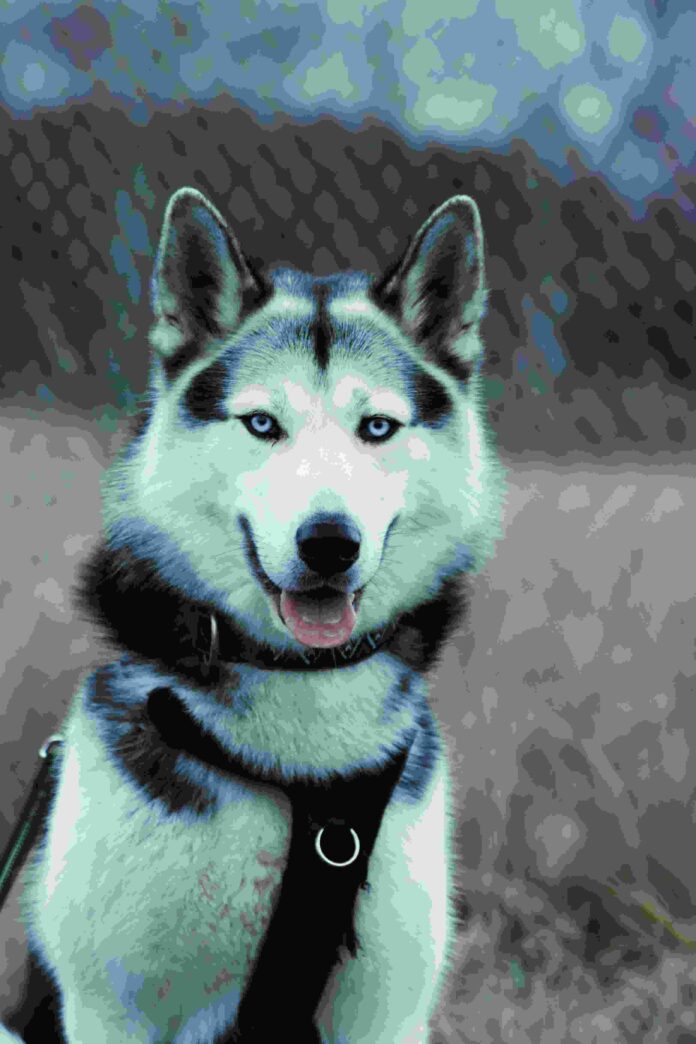What Does the Dog Eat :When people keep pets, one thing that comes to their mind is what to feed their dog. They take advice from their friend or animal doctor. Dog food becomes very important for them and is the cornerstone of their health, vitality and happiness. How to choose the right food and what not. So, let’s dive into the world of dog nutrition.
Understanding a Dog’s Nutritional Needs:
While answering the question “what does a dog eat?”, we must first understand the dog’s basic nutrition. Dogs are omnivores, so they eat meat, green vegetables, and many other types of foods, although their first source of energy comes from proteins and fats.
Proteins: The Building Blocks-
Dogs are given protein because protein helps in the development of muscles in their body, which is extremely necessary for the growth of tissues. The sources of protein are chicken, fish and eggs. Another thing, protein strengthens bones and is also helpful in repairing skin.
Fats: Energy Powerhouse-
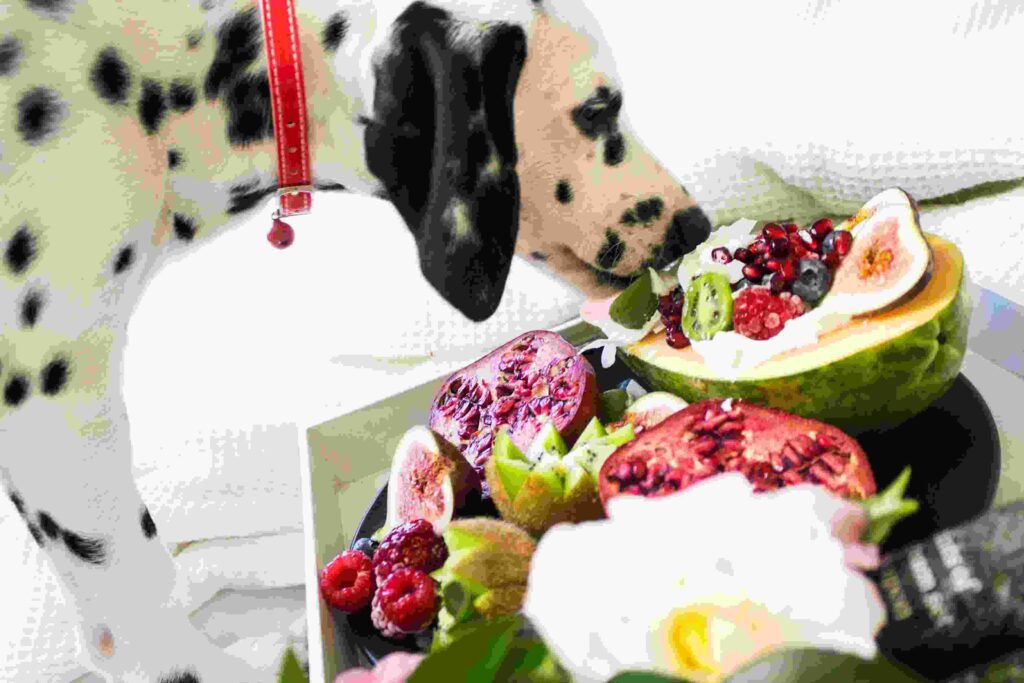
Fat gives energy to dogs and also makes the skin shiny. Fat is mainly obtained from fish oil, meat and vegetable oils. Eating fat is also considered to be an energy booster. It also helps in maintaining joint and heart health. Fat should not be consumed in excess.
Carbohydrates: Secondary Energy Source-
Although carbohydrates are not as essential as proteins and fats, they can still provide instant energy to dogs. Carbohydrates can be a good source of energy for dogs. Good sources of carbohydrates are rice, barley, oats and sweet potatoes. These can be good options.
What Does the Dog Eat at Different Life Stages:
A dog is also given food according to its age which is at different stages like what a puppy eats, what a young dog eats or what an old dog eats, all these have different needs.
Puppies-
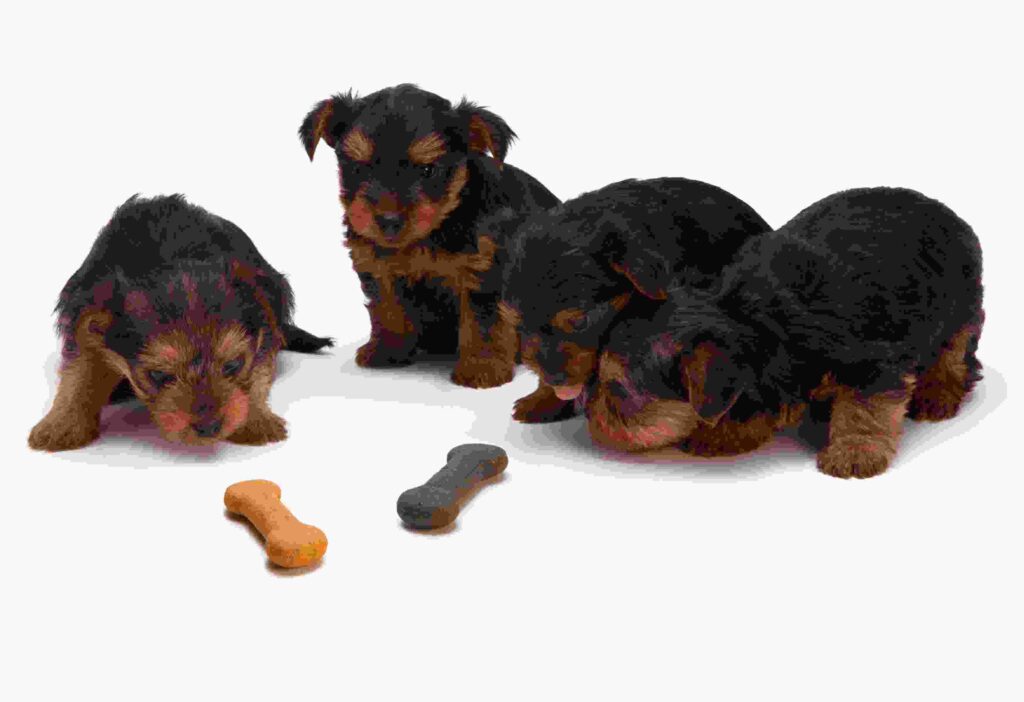
You will notice that a puppy needs more nutrients for its rapid growth and development, as smaller puppies require more protein and calories than larger dogs. Puppies of different breeds should be fed according to their needs, as large breed puppies need specific nutrients to support their bones.
Adult Dogs:
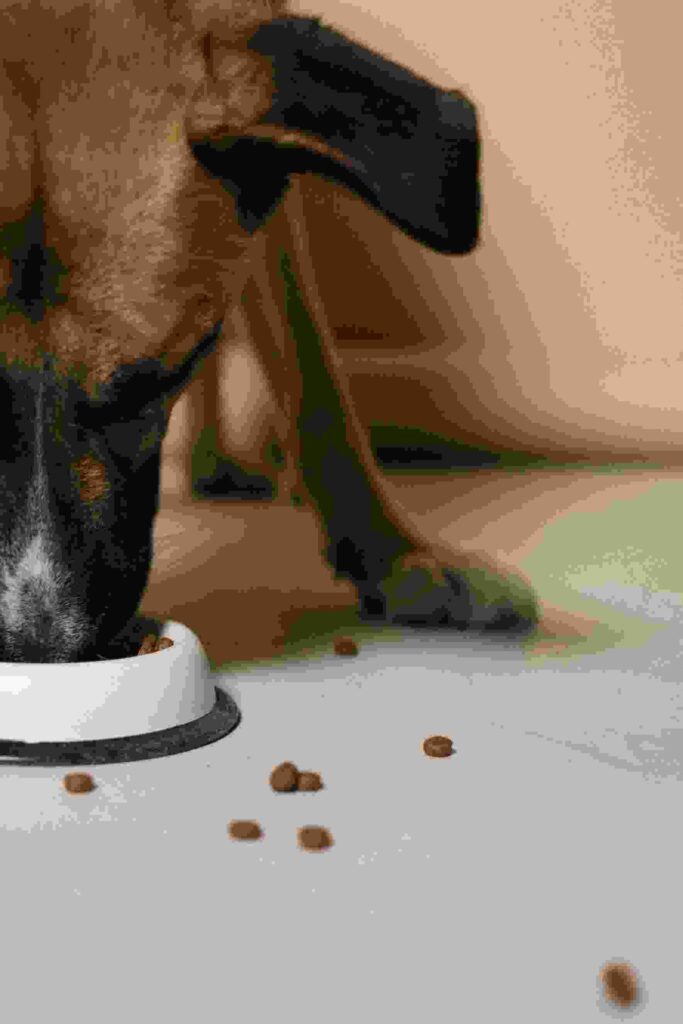
Young dogs should always maintain their weight and energy and for this, a balanced diet should be given to the dog. And to avoid obesity, it is important to control the dog’s diet, like protein is required for a dog 10% and its source is best animal protein, Fat: 5.5% of the dog’s diet should come from fat. Healthy fats obtained from animal sources and seeds help maintain cell structure and function. Carbohydrates: Up to 50% of the dog’s diet can come from carbohydrates. Carbohydrates obtained from sources like rice, sweet potatoes and whole grains provide energy. Fruits and vegetables: Vitamins, minerals and fiber can be given.
Senior Dogs-
As you might have noticed, as dogs grow older, their food also changes because their ability to digest food decreases, so they are always given less calories in the food. It is rich in adjusted protein levels and joint-supporting elements like glucosamine and chondroitin.
Types of Dog Food: What Does the Dog Eat:
Dog food comes in different forms, the choice of which should always be based on your pet’s preference, and has a great impact on its health and lifestyle
Dry Dog Food (Kibble)-
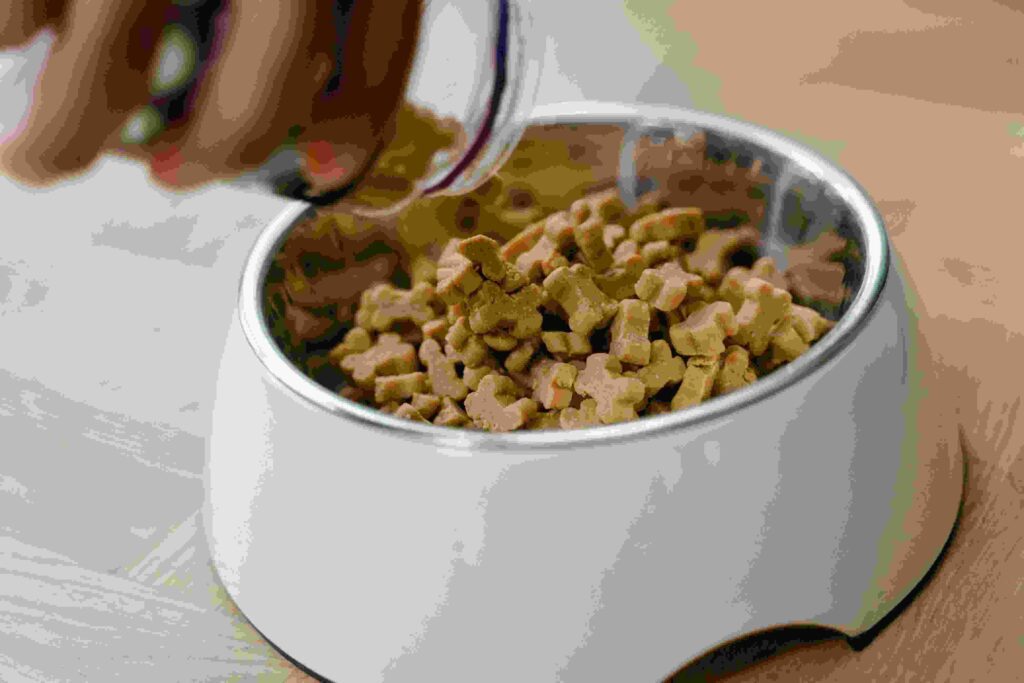
The importance of dry food is that it lasts a long time, that is why it is so popular, it also helps in maintaining the health of the dog’s teeth by reducing tartar buildup. Kibble, in simple language it is a dog food, it contains meat, grains and green vegetables, they are dried and broken into small pieces and given the shape of a pellet, it is very popular with many pet owners.
Wet dog food (candy food)-
Wet food is actually tastier and more hydrating, it is more delicious and nutritious than dry food. It has more protein and fat and less carbohydrates which helps in maintaining weight. It has a higher percentage of water, so dogs do not feel dehydrated in summers and hence summers have no effect. Keep reading the nutritional facts, check the quality of the ingredients and consult a vet to make the right choice.
Feeding a dog raw food-
Some owners prefer a raw diet, which consists of raw meat, bones, and vegetables. Although this is closer to what wild dogs eat, it needs to be prepared very carefully to make it balanced. Raw meat is actually a dog’s natural diet, but it needs to be balanced. Feeding only muscle meat causes nutritional deficiencies in the organism. Therefore, feed the dog a raw food that has the right proportion of muscle organs and bones. Also, a balanced diet is important for the dog’s health and energy.
Homemade dog food-
This basically allows you to have control over the ingredients that you can take the time to prepare at your home. Most dog owners, are also those who enjoy cooking, therefore, they would like to extend their hobby to their pets. Similarly, raw food is great for dogs because it has been seen that cooking meat destroys a lot of nutrients. Structurally, a dog’s body is designed to draw nutrients from raw sources, so let them take the food as nature intended.
Human Foods: What Does the Dog Eat Safely:
Dogs love to partake of human food, but it should be known which food is safe for them and which is harmful.
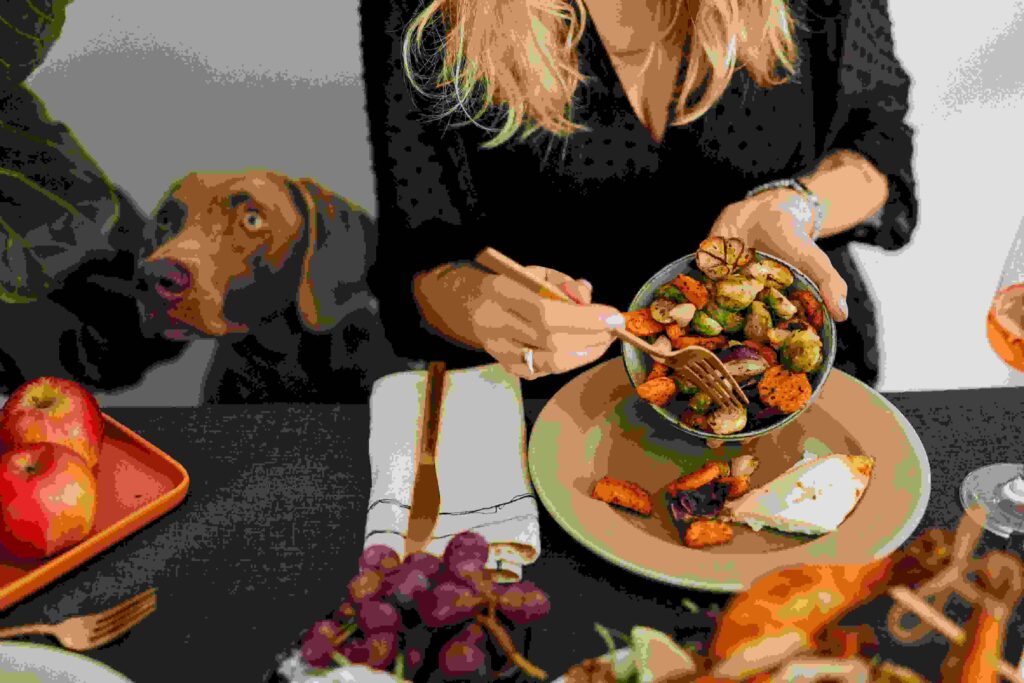
Safe food
Carrots: Low on calories and fruitful in teeth cleaning.
Apples: Fiber and vitamin rich but seedless.
Chicken, plain cooked, may be good for a snack.
Peanut butter: Give nut butter without salt and xylitol.
Unsafe food
Chocolate: Theobromine-containing-his-poison for dogs.
Grapes and raisins: The two can damage the kidney.
Onion and garlic: These cause damage to red blood cells in a dog.
Alcohol: Even tiny amount can be fatal for dogs.
All food must be safe for a dog’s healthy consumption. Consult a vet before introducing any new food.
How to Transition Your Dog’s Diet:
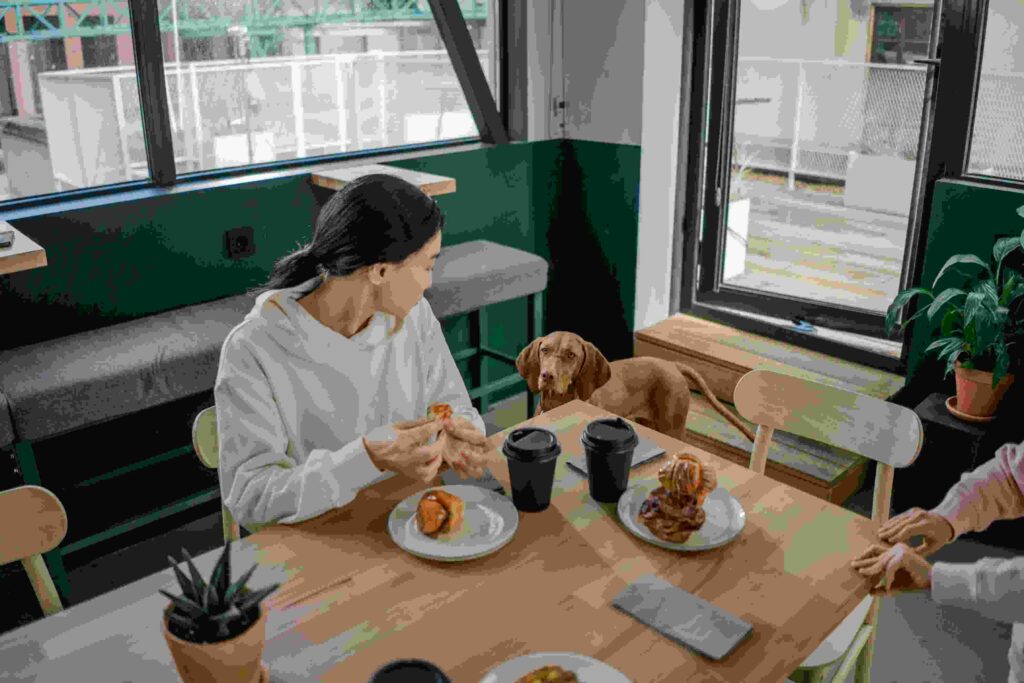
Sudden changes to a dog’s diet can cause digestive problems. It is important to make the transition gradually. The following is a simple method:
- First few days: 75% old food and about 25% new food.
- Over the next 7 to 10 days, gradually reduce the amount of old food and increase the amount of new food.
- Monitor your dog carefully. If he shows signs of vomiting, diarrhea or any other discomfort, take him to the vet immediately.
This process will help your dog digest the new food easily.
Special Diets: What Does the Dog Eat for Specific Needs:
Most of the time, dogs are put on special diets if they are suffering from health issues, and for this, talking to a veterinarian is important.
Weight management:
For an overweight dog, it is better to feed him on a high fiber, low calorie diet and help him lose weight.
Allergies:
Some dogs may have common allergies, some through tend to react to chicken or wheat. Such dogs would be recommended a hypoallergenic diet that excludes these allergens.
Sensitive Stomach:
For a dog suffering from digestion problems, It is advisable to be put on lighter easily digestible diets like rice and boiled chicken. This soothes the stomach and aids digestion.
Veterinary advice is paramount on all such special diets.
Common Feeding Mistakes to Avoid:
Overfeeding
Obesity is synonymous with relatively common health-related problems. Some of these may include diabetes and arthritis, but there are other health problems resulting from it. Thus, the dog should receive food in appropriate quantity and at the right time.
Feed leftovers from dinner
Your dog can acquire bad habits and develop an imbalance in its diet simply by feeding it leftovers from your dinner. This can make it growcut unhealthy levels of fat.
Ignoring Portion Sizes
Feed your dog according to the directions specified in the food document or take the dose prescribed by your veterinarian. Overdosing the portion size may cause the dog to overeat.
Food Preparation
The dog has to be fed at regular intervals, since missing a meal could cause stress and damage digestive processes in them, leading to adverse effects on health.
Keep these things in mind so that your dog remains healthy and happy.
Conclusion: What Does the Dog Eat Matters
One of the questions that most pet owners want answered is how to feed their dog the best food. Through an understanding of “what does he eat?”, one can guarantee that he will be able to stay healthy and satisfied. Diet is very much connected to health – from puppies to older dogs, from poor kibble to homemade food. Remember, every dog is different and so consult your veterinarian to create a meal plan.
